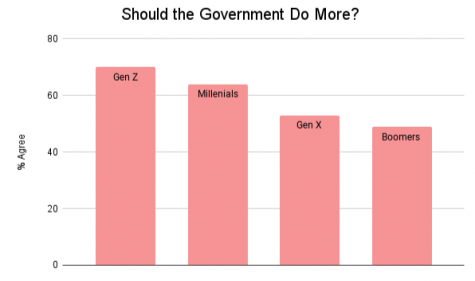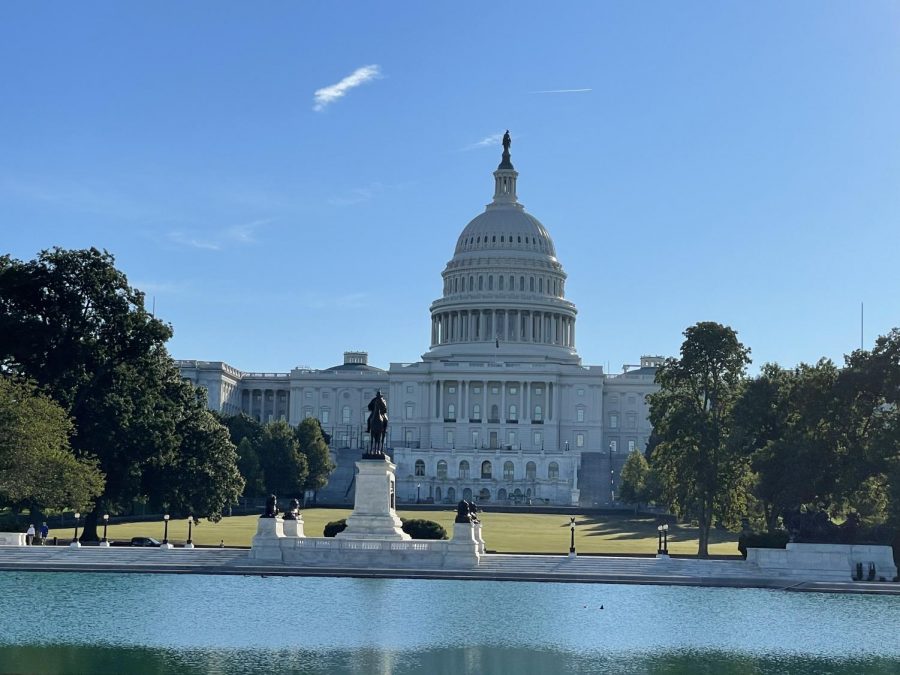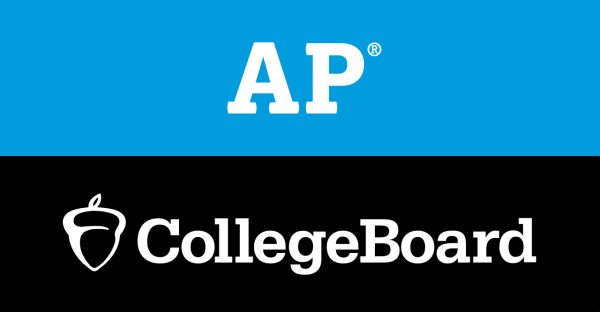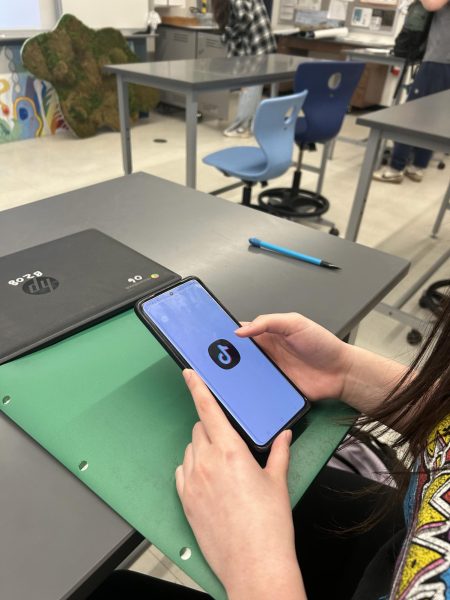Midterms Reveal Polarizing Politics Among Young People
The Capitol, where much of the debate surrounding Biden’s bills is held.
The recent midterms in America are the latest in a series of elections that have exposed the increasing polarization of our politics. As young people stray further and further from the traditional political parties, they are struggling to engage voters, causing major fears for turnout in 2022. Following the midterms, many are now beginning to turn their attention to next year’s midterms, where Democrats will be looking to gain control of the Senate and strengthen their hold on the House of Representatives. However, they are now facing a major obstacle- holding onto the voters that put Biden in office.
It’s no secret that American politics have become increasingly polarized, with the 2020 presidential election being a recent event that brought these issues to light. Since then, President Biden has lost a lot of political approval, especially among Black and Latinx voters, according to data from Pew Research Center. It’s likely that this large drop in support comes from a variety of reasons, with the Associated Press citing disappointment from both sides on how the administration handled the US withdrawal from Afghanistan. There has also been a drop in support from young people.
Young people on both sides of the political line are beginning to differentiate from their older counterparts in a lot of key ways, particularly among social issues. In a 2019 Pew Research Center study, it was found that around 70% of Gen Z and 64% of Millenials thought that the government should be doing more, compared with 49% of Boomers and 53% of Gen X. With a generation known for its political and social activeness, there have also been changes among those who identify as more politically right, with around 43% of Gen Z Republicans agreeing that black people are treated unfairly in this country, a stark contrast from 20% of Silent Generation Republicans.

When asked about the origins of their interest in politics, both Hall students interviewed cited their parents raising them to be involved. Both also felt that many policies have a direct effect on them because of their own identities. “I think there is no better outlet to make change that benefits your community [than] politics,” said a Hall senior.
In addition, the animosity amongst parties has become a larger and larger issue as of late. Pew Research Center found that, while many carry a dislike for the opposing party, almost 27% of Democrats and 36% of Republicans view the opposing party as being “so misguided that they threaten the nation’s well-being.” Highly opposing views like this can lead to the formation of political echo chambers, where one only surrounds themselves with those who agree with their own views.
While some may feel that they can remain friends with those of opposing political views, one Hall student stated, “I like talking about politics with friends, and if they’re always going to end in a screaming match, I would rather just avoid that.” Another common reason behind not maintaining friendships with those opposing their own political views was that the students did not want to have their rights debated in front of them, and said that they had no desire to maintain friendships with people who did not believe they should have rights to marry or equal pay.
All of these circumstances have contributed to a worrying position for the Biden administration as they head into the next election cycle. The 2.2 trillion-dollar spending bill may get through the Democrat-controlled House, but in order to pass, it will need to face the Republican-controlled Senate. Once there, the New York Times says it is likely to reduce the overall price tag. The discussions surrounding the bill are expected to lead to stripping some of the provisions from it, such as the paid family leave, but are an important part of passing the bill that will have a large impact on how voters on both ends of the spectrum will view the administration in the coming months.






